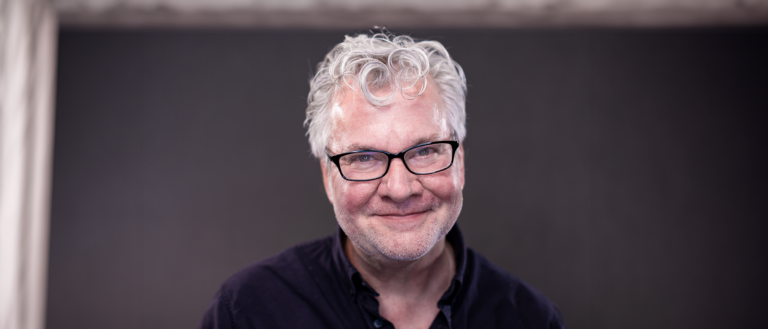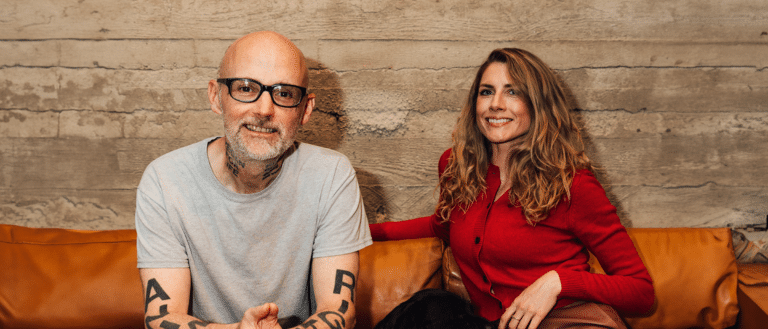This week’s conversation is with Ryan Holiday, the bestselling author of The Obstacle Is the Way; Ego Is the Enemy; Conspiracy and other books about marketing, culture, and the human condition.
His work has been translated into over 30 languages and has appeared everywhere from the New York Times to Fast Company.
His company, Brass Check, has advised companies such as Google, TASER, and Complex, as well as multi platinum musicians and some of the biggest authors in the world.
You may already be familiar with Ryan from his previous appearance on Finding Mastery a few years ago (episode #043).
Ryan is a proponent of stoicism and in this conversation, we discuss what led him down that path and why the underlying philosophy is so important to him.
“A Stoic doesn’t control the world, but they always control how they respond to the world. So it’s a really great philosophy if you’re doing something. If you’re a leader or an athlete or a poet or a politician, it’s there for the stresses of life.”
In This Episode:
Why he prefers living outside the city
I have found that the more out of the scene I am, the writing scene, or the entrepreneur scene, the more I can focus on being motivated by what I want to be motivated by and the less professional competition or jealousy or, “What is so-and-so doing?” The less that plays into my life.
Not fitting in
None of my parents, friends or my friends’ parents were entrepreneurs, no one was writers. They had government jobs or they were real estate agents. They were like normal people professionally. So I think for me, I think it was pretty clear early that I wasn’t a fit for those things. So whatever vibe someone gets when they see like a six-and-a-half foot tall, 16-year-old, and they go like, “That person should play sports.” I just didn’t really fit. And it was sort of, this was not my space. And I felt that growing up even within my own family, that there was a personality, wavelength that we were not on the same one of. And so that sort of, as I think more about my childhood, there was this prevailing sense of not living in the same universes.
Who believed in him?
I remember I had an 11th grade honors English teacher and I went and I went and I asked her for a letter of recommendation for USC, which I did not get into, probably had zero chance of getting into. But I asked for a letter of recommendation, and this English teacher, and I found the letter somewhat recently, and it said something like, “There is zero doubt in my mind that Ryan will be a major literary voice in his lifetime,” or something like that. And it was like, I think what was so surprising to me was, it wasn’t even like… I don’t even think I had any conception that I would be a writer and this person had the idea that I would be, not just a writer, but a professional writer of some significance. And it was this weird contrast, particularly in my late teens and then when I went to college where my parents maybe thought I was like a dud or something, and then these people, whether it was teachers and then later, real writers I would meet, were convinced that they discovered someone who was going places. So that was a really weird adjustment period for me in my early 20s.
How did he get into Stoicism?
Epictetus, one of the Stoic philosophers. I read that one and all the Stoics, and it was this life-changing moment in my 20s because I had ambition and I had talent, but Stoicism is sort of a set to philosophy, but I would argue it’s more like a way of living that’s kind of a set of obligations, it’s like a code, maybe it’s similar to like a Samurai Code or something that’s said, “It’s a prescription for how a person should be.” And it was popular in ancient Rome, primarily with ambitious people, whether they’re the emperor, or a senator, or a playwright or something
What’s his definition of Stoicism?
A Stoic doesn’t control the world, but they control always how they respond to the world. So it’s a really great philosophy if you’re doing something. If you’re a leader or an athlete or a poet or a politician, it’s there for the stresses of life. It’s four virtues are courage, justice, wisdom, and temperance. I think I fell in love with Stoicism because it gave me the guidance, support, and mentorship that maybe I really desperately had needed early on in my life, but hadn’t gotten. So it kind of rushed in and filled this void that maybe I would have otherwise gotten somewhere else.
The tension between ambition and values
What I think is interesting in Stoicism is that there’s this tension between the ambition and the values. So if you’re not an ambitious person, you’re not feeling that tension, but if you are, it really hits you because it’s giving you a sense of what being great at something really is. Being great at something is not just being talented. When you read Meditations, you’re reading this guy who is the ruler of the known world, like the most powerful person on the planet. And he’s having this conversation with himself about all the ways that he needs to constrain himself. “Don’t do this, do this. You know what’s important.” He says, “Just that you do the right thing, the rest doesn’t matter.” He says, “No one’s going to remember you 100 years from now. None of that matters. What matters is what you do.” And so there’s this self-talk element, that’s kind of self-regulation that I think anyone who is going places or is watching their life trajectory take off, it really helps root you. I remember in my 20s having this sense of like, “Okay, I’ve been chosen for these things. I’m in rooms or meetings, or have responsibilities that are totally inappropriate for my age.” So if I don’t have some counterbalance, I remember thinking like, “I’m going to spin off the planet.” And most young people with potential, whether they’re number one draft picks or startup CEOs, most people crash and burn if you get those things early. And I think, Stoicism really helped me as a guiding philosophy, kind of an even keel, which I needed because I wasn’t naturally that way at all.
The issue with cancel culture
We’re in a tricky moment as a society, because on the one hand, one has to look unflinchingly at history and look at the flaws and the weaknesses and the mistaken assumptions of the people of the past. History is not propaganda, it’s fact, and you have to study it if you want to learn from it. At the same time, I think we’ve picked up this weird thing lately where, and we’re doing this now, even with people in our own time where we want to hold people accountable or hold them to a standard, which was inconceivable at their time. What I try to do with the Marcus or a Winston Churchill is I try to go, “Compared to their previous generation or compared to their contemporaries, where did they sit?” We’re struggling with this in California where it’s like, “Let’s tear down statues of Abraham Lincoln because Abraham Lincoln, although he freed the slaves did not inherently believe in the equality of the races.”
What needs to happen for society to make progress
You have to support and celebrate people who made advancements in their own time. The idea that you would expect them to share all your assumptions and all the progress we’ve made. When I look at historical figures, I try to go, “Did this person move the ball forward?” I’m not saying that I overlook what they did. I think you actually have to study it, and what I’m fascinated with, with Marcus (Aurelius) are these moral failings, because that’s work we have to do as individuals on ourselves. No one just comes out, born magically with all the right assumptions. But I want to say, did he get better? Did he adopt the prevailing norms of his time completely, or did he struggle in his own way to move them forward? And I think it’s indisputable that he did just like, Thomas Jefferson, not just a slave owner, but Thomas Jefferson is a monster, does horrible things with this slaves. And yet his understanding of inalienable rights advances the human race hundreds of years and provides the framework through which Martin Luther King, who is as much a founding father of America as Thomas Jefferson and Abraham Lincoln too, manage to help realize in a literal way that Thomas Jefferson was only thinking about in the most abstract sense.
What’s a principle he applies from Stoicism?
So as a writer, let’s say, to write a bad book, to fail at my job, that would be bad. To try really hard to become my best, to accomplish what I’m trying to do creatively, that would be good. To fulfill my potential, that’s a good. But then for the Stoics the interesting thing was, well then, where does material success from that profession come in? Is it bad because it’s not in our control? Is it something we should try to make in our control? Or is it in a gray area in between? And so for the Stoics, this idea of preferred indifferents, not E-N-C-E, but E-N-T-S, preferred indifferents, success, hitting the bestseller list, was something that it’s nicer to have than to not have, but it’s not in and of itself good. So this idea of, that there’s things that are up to us, things that are not up to us and then things that are okay to enjoy when you have them, to me is a foundational understanding of Stoicism.
Another principle he applies from Stoicism
It’s not things that upset us, it’s our opinion about things. . But the idea that events are objective and then we make up things about them is really important. And I had a therapist once that got me on the habit of, for instance like, you go, “What I make up about that is.” That expression to me is actually the essence of Stoicism. Like the market is, and then we make up about it that it’s a bull market, or that it’s a bubble, or that it’s a bear market, or that it’s a depression. These are words that we put on top of things. Things just are. A game is a game. The announcer says it’s a blowout, the announcer says that it was a hard one match. It just was, and our opinion about it determines so much of what we take it to mean.
What he loves about Stoicism
What I love about Stoicism, and I love this about Robert Green’s works too, people often, the criticism they try to make of Robert Greene is they go, “But Robert, your law number two says X, and law 37 contradicts X.” What you see in the Stoics is like, sometimes Marcus is like, “Zoom way in, get so specific. Look at this in the smallest possible increment.” And then 10 passages later, he’s saying, “Zoom out, take the 10,000 footview. See how small this is. See how little that matters.” And so I think one of the things that Stoicism really is, as opposed to being like, here are the 10 commandments of Stoicism, is it’s really a framework for manipulating the mind to get to the right response in each situation.
What’s a daily habit he’s a believer in?
I wake up early, which is by choice, but also inevitable given how young my kids are. But my first rule is I don’t touch the phone when I wake up in the morning. So I did two hours this morning before touching the phone. So as I awake, as a human being for two plus hours before touching the phone. And what did I do in those two hours? I went for a long walk with my kids. So I was outside for an hour, just sort of doing, kind of a walking meditation, talking, spending time together. I spent some time with my journal. I made my lunch for the day, took a shower, and then I went to my office to do my writing. I try to do the creative tasks or the deep work task before I do the other crap. For me, it’s about setting the morning up to be successful, doing the important things as early as possible with as few distractions as possible, and working myself up to get into the headspace to do, maybe only an hour of writing today, hour of writing a day. Like I wrote for about an hour today, had an article that I’m working on. I did that. And that’s a successful day. I accomplished that little task that I had for the day.
What causes him anxiety?
My world is like, this talk is at a 10:45, and I’m already running 15 minutes behind this morning. And then I want to do this and I want to do this. And then I want to have time to get in the right head space. And now all of a sudden, I just feel stressed because I have this thing that’s in the future that is looming larger and larger on the horizon. Do you know what I mean? And so I found, not traveling, not going to meetings, not going out to lunch with people, just radically simplifying the amount of things that I have to do in my life, I’m so much happier. My relationship with my wife is so much better. I like people more because there’s just less stressful things that I can have the anxiety about.
Why do people care so much about what others’ think (FOPO)?
A lot of caring what other people think, and Marcus Aurelius talks about this in Meditations, he says, “We care about our ourselves more than other people. We’re self-interested, and yet, we care about other people’s opinions more than our own.” I think often, we lack the confidence to go like, “I think X, about where the economy’s going.” Think about coaches not going forward on fourth down as often as statistically they should go. What is preventing them from doing that? These are people paid millions of dollars. These are the most competitive people in the entire fucking world, and yet they won’t do it. And it’s primarily because, they don’t want to be judged by other coaches or announcers after the game.


